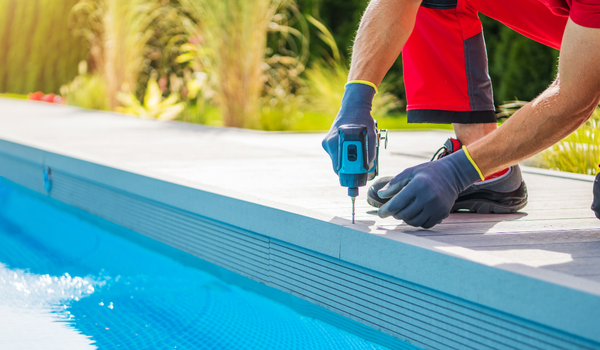Turning your house into your dream home often means more than just decorating, it’s about adding functionality, comfort, and long-term value. Two of the most impactful upgrades homeowners consider are building a garage or installing a pool. Both projects offer lifestyle benefits and boost property value, but they can also come with a significant price tag. Fortunately, a home equity loan can provide the financial flexibility to turn your vision into reality.
In this guide, we’ll walk you through everything you need to know about using a home equity loan for home improvement projects like building a garage or pool: costs, benefits, steps, and smart planning.
Understanding Home Equity Loans for Home Improvement
What is a Home Equity Loan?
A home equity loan is a type of loan that allows homeowners to borrow money using the equity in their home as collateral. Equity is calculated by subtracting the remaining mortgage balance from the current market value of the home. For example, if your home is worth $400,000 and you owe $250,000, you have $150,000 in equity.
Home equity loans are usually issued in a lump sum and repaid over a fixed term with a fixed interest rate. This makes them ideal for large, one-time expenses, like building a garage or constructing a pool.
Why Use a Home Equity Loan for Building Projects?
Home equity loans are especially well-suited for home improvement projects because:
- Lower interest rates: Compared to personal loans or credit cards, home equity loans often come with much lower rates.
- Predictable payments: Fixed monthly payments make budgeting easier.
- Potential tax benefits: If the loan is used to “substantially improve” your home, the interest may be tax-deductible (consult a tax advisor).
- Longer repayment periods: This allows you to fund a major project without straining your monthly cash flow.

Building a Garage: Costs and Considerations
How Much Does It Cost to Build a Garage?
The cost of building a garage varies widely depending on factors like size, materials, and whether it’s attached or detached. On average:
- Single-car garage: $10,000 – $20,000
- Two-car garage: $20,000 – $40,000
- Detached or custom garages with lofts or workshops: $40,000 – $100,000+
Other cost considerations include:
- Foundation work
- Electrical and HVAC installation
- Insulation and drywall
- Roofing and exterior finishes
- Permits and inspections
Getting detailed quotes from local contractors is key to understanding your total investment.
Benefits of Adding a Garage to Your Home
A garage offers more than just parking:
- Increased storage: A safe place for tools, bikes, lawn equipment, or seasonal décor.
- Vehicle protection: Shields your car from weather damage and theft.
- Energy efficiency: An attached garage can help insulate your home.
- Higher resale value: Homes with garages are more appealing to buyers and typically sell for more.
- Potential rental income: Some homeowners convert garages into accessory dwelling units (ADUs).
Key Steps to Building a Garage with a Home Equity Loan
- Estimate your budget: Know how much you want to spend before applying for financing.
- Apply for a home equity loan: Contact your credit union or lender to get pre-approved and lock in a competitive rate.
- Hire a licensed contractor: Choose someone with experience in garage construction and solid references.
- Obtain permits: Work with your contractor to ensure your project complies with local zoning and building codes.
- Track expenses: Stay on top of costs to avoid budget overruns.
- Plan for the future: Consider wiring for electric vehicles or designing space for future upgrades.

Constructing a Pool: Financial and Practical Insights
How Much Does It Cost to Build a Pool?
Pool installation costs vary based on size, materials, and design complexity:
- In-ground pool: $35,000 – $65,000 for a basic model.
- High-end custom pools with features like waterfalls or spas: $80,000 – $150,000+
- Above-ground pools are much cheaper but typically don’t add value to the home.
Additional costs include:
- Pool deck or patio
- Fencing for safety compliance
- Pool heaters or lighting
- Regular maintenance and increased utility bills
The Perks of Having a Pool
Despite the upfront costs, a pool offers a range of benefits:
- Entertainment and relaxation: Great for family gatherings, kids, and staycations.
- Health and fitness: Swimming is a low-impact workout accessible from your backyard.
- Curb appeal: A well-designed pool adds elegance and charm.
- Increased property value: Especially in warmer climates where pools are highly sought after.
Guide to Using Home Equity for Pool Construction
- Determine your equity: Calculate how much you can borrow based on your current mortgage and home value.
- Shop for home equity loan options: Credit unions often offer more competitive rates than traditional banks.
- Get multiple pool quotes: Don’t go with the first contractor, evaluate options for cost, design, and maintenance support.
- Check local regulations: Some neighborhoods or municipalities have restrictions or added insurance requirements for pools.
- Schedule the build strategically: Spring and fall can be less busy for contractors and may save you money.
- Understand ROI: A pool may not offer dollar-for-dollar resale returns in every market, so make sure the lifestyle value aligns with your goals.

Maximizing the Value of Your Home Improvement
Selecting the Right Contractor and Materials
Quality workmanship and materials matter, not just for aesthetics, but for durability, safety, and value. Tips for choosing the right professionals:
- Get referrals and reviews: Check with friends, neighbors, and online review sites.
- Verify licenses and insurance: A reputable contractor should provide this without hesitation.
- Request a written contract: Make sure all expectations, timelines, and costs are clearly outlined.
- Don’t always go with the cheapest bid: Value includes reputation, communication, and quality.
When it comes to materials:
- Look for durable, low-maintenance options like composite decking or energy-efficient pool systems.
- Consider upgrades that will stand the test of time and increase resale appeal, such as smart garage doors or saltwater pool systems.
Future-Proofing Your Investment
Your garage or pool should enhance your life now and retain value later. To future-proof your investment:
- Think about technology: Add outlets for electric vehicles or install smart pool equipment.
- Plan for accessibility: Include wide doorways or step-free pool entries if aging in place is a concern.
- Consider resale impact: Keep designs neutral and functional so they appeal to future buyers.
- Invest in energy efficiency: Solar heaters for pools or insulated garage doors help reduce long-term costs.
Conclusion
Whether you’re dreaming of a peaceful backyard pool or need the extra storage and function of a garage, a home equity loan can be a smart, affordable way to bring your vision to life. These projects not only enhance your lifestyle but also add lasting value to your property.
Credit unions are often an excellent place to start your financing journey, offering competitive rates, personalized service, and flexible terms. By planning carefully, selecting the right professionals, and leveraging your home’s equity wisely, you can transform your home into the space you've always wanted, one project at a time.
Contact ATFCU Today About a Home Equity Loan
Related Resources:

